Table of Contents
-
FREE
REGISTRATION
HERE!
-
New to supercomputing? Click
here.
-
KEYNOTE:
Bronson
Messer,
Oak Ridge National Laboratory
-
PLENARY:
Erwin
Gianchandani,
National Science Foundation
-
PLENARY:
Henry Neeman,
University of Oklahoma
-
PLENARY:
Dan Stanzione,
Texas Advanced Computing Center,
University of Texas at Austin
-
PLENARY:
Vas Vasiliadis,
University of Chicago
-
PLENARY PANEL:
James Deaton,
OneNet
-
PLENARY PANEL:
Dana Brunson,
Internet2
-
PLENARY PANEL:
Brian Burkhart,
OneNet/Oklahoma State Regents for
Higher Education
-
PLENARY PANEL:
Jeremy Evert,
Southwestern Oklahoma State University
-
PLENARY PANEL:
Franklin Fondjo Fotou,
Langston University
-
PLENARY PANEL:
Karl Frinkle,
Southeastern Oklahoma State University
-
PLENARY PANEL:
Evan Lemley,
University of Central Oklahoma
PLENARY
SPEAKERS
Director of Science
Oak
Ridge Leadership Computing Facility
National
Center for Computational Sciences
Oak
Ridge National Laboratory
Topic:
"Frontier: Breaking the Exascale Barrier with
the Fastest Supercomputer Ever"
Slides:
PDF
Talk Abstract
The first exascale computer, called Frontier, has been delivered to Oak
Ridge National Laboratory this past year. This unique scientific instrument
is the culmination of more than a decade of concerted effort. I will relate
a bit of the history of hybrid-node computing at the Oak Ridge Leadership
Computing Facility (OLCF) and how Frontier represents the latest iteration
of that approach. Some details of Frontier's architecture will be discussed,
including an overview of the new AMD MI250X GPUs that provide the bulk of
the computational power for Frontier. Finally, a look ahead to some of the
first science objectives that will be pursued on the machine using codes
developed as part of the Exascale Computing Project and OLCF's own Center
for Accelerated Application Readiness will be provided.
Biography
Bronson Messer is
a Distinguished Scientist
and
Director of Science at
the
Oak
Ridge Leadership Computing Facility
(OLCF)
at
Oak
Ridge National Laboratory
(ORNL).
He is also
a Joint Faculty Associate Professor
in
the
Department
of Physics & Astronomy
at
the
University
of Tennessee Knoxville.
His primary research interests are related to
the explosion mechanisms and phenomenology of
supernovae
(both thermonuclear and core-collapse),
especially neutrino transport and signatures,
dense matter physics,
and the details of
turbulent nuclear combustion.
Dr. Messer is a member of
the
American
Astronomical Society,
the
American
Physical Society,
and
the
American
Association for
the Advancement of Science.
Director
OU
Supercomputing Center for Education
& Research (OSCER)
Executive Director of Research Computing
Information
Technology
Associate Professor
College
of Engineering
Adjunct Associate Professor
School
of Computer Science
University
of Oklahoma
Topic:
"OSCER State of the Center Address"
Slides:
PowerPoint
PDF
Talk Abstract
The
OU
Supercomputing Center for
Education & Research
(OSCER)
celebrated its 21st anniversary
on August 31 2022.
In this report,
we examine
what OSCER is,
what OSCER does,
what OSCER has accomplished
in its 16 years,
and where OSCER is going.
Biography
Dr.
Henry Neeman
is the
Director of the
OU
Supercomputing Center for Education &
Research,
Executive Director of Research Computing
for OU
Information
Technology
(IT),
Associate Professor in the
College
of Engineering
and
Adjunct Associate Professor in the
School
of Computer Science
at the
University of
Oklahoma.
He received his BS in computer science
and his BA in statistics
with a minor in mathematics
from the
State
University of New York at Buffalo
in 1987,
his MS in CS from the
University of
Illinois at Urbana-Champaign
in 1990
and his PhD in CS from UIUC in 1996.
Prior to coming to OU,
Dr. Neeman was a postdoctoral research
associate at the
National
Center for Supercomputing Applications
at UIUC,
and before that served as
a graduate research assistant
both at NCSA
and at the
Center for
Supercomputing Research &
Development.
In addition to his own teaching and research,
Dr. Neeman has collaborated with
dozens of research groups,
applying High Performance Computing techniques
in fields such as
numerical weather prediction,
bioinformatics and genomics,
data mining,
high energy physics,
astronomy,
nanotechnology,
petroleum reservoir management,
river basin modeling
and engineering optimization.
He serves as an ad hoc advisor
to student researchers
in many of these fields.
Dr. Neeman's research interests include
high performance computing,
scientific computing,
parallel and distributed computing
and
computer science education.
Erwin
Gianchandani
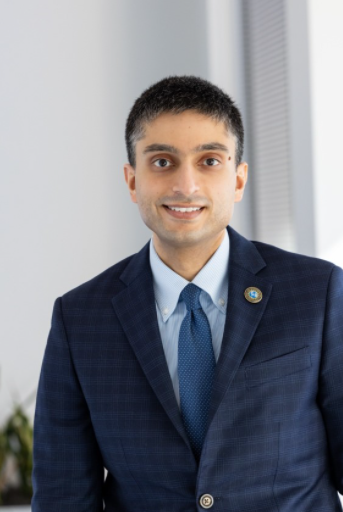
Assistant Director
Directorate
for Technology, Innovation and
Partnerships
National
Science Foundation
Topic:
"Advancing Technology, Innovation
and Partnerships"
Slides:
PDF
Talk Abstract
Since its establishment in 1950, the National Science Foundation
(NSF) has funded discoveries and innovations that have transformed our
lives, from the Internet to Google to MRI machines. In this session, I will
provide an overview of NSF's first new directorate in more than three
decades, the Directorate for Technology, Innovation and Partnerships (TIP),
describing how this directorate is advancing critical technologies,
accelerating the translation of these technologies from the lab to society,
addressing pressing economic challenges, and engaging the Nation's broad and
diverse population in this work. For example, a flagship investment led by
TIP, the NSF Regional Innovation Engines, constitutes a bold new initiative
to spark regional-scale innovation ecosystems throughout the country, and
particularly in those parts that have not benefited from the technological
booms of the last several decades. Along the way, I will note the essential
role that research cyberinfrastructure will continue to play in realizing
this vision of expanding the nation's research and innovation ecosystem, and
ultimately ensuring the U.S. remains in the vanguard of competitiveness for
decades to come.
Biography
Dr. Erwin Gianchandani is the U.S.
National
Science Foundation'
assistant director for
Technology, Innovation and Partnerships,
leading the newly established
Directorate
for Technology, Innovation and
Partnerships.
Gianchandani has worked at NSF since 2012.
Prior to becoming
the assistant director for TIP,
he served as the senior advisor for
Translation, Innovation and Partnerships
for over a year,
where he helped develop plans for
the new TIP Directorate
in collaboration with colleagues at
NSF,
other government agencies,
industry
and
academia.
During the previous six years,
Gianchandani was
the NSF deputy assistant director for
Computer
and Information Science
and Engineering,
twice serving as
acting assistant director for CISE.
Gianchandani's
leadership and management of CISE
included the formulation and implementation of
the directorate's $1 billion annual budget,
strategic and human capital planning,
and oversight of day-to-day operations for
a team of over 130.
Gianchandani has led
the development and launch of
several new NSF initiatives,
including the
Smart
& Connected Communities
program,
Civic
Innovation Challenge,
Platforms
for Advanced Wireless Research,
and the
National
Artificial Intelligence
Research Institutes.
Before joining NSF in 2012,
Gianchandani was the inaugural director of the
Computing
Community Consortium,
providing leadership to
the computing research community
in identifying and pursuing
bold, high-impact research directions
such as
health information technology
and sustainable computing.
Gianchandani has published extensively
and presented at international conferences
on computational systems biology.
He holds
a bachelor's degree in
Computer
Science
and master's and doctoral degrees in
Biomedical
Engineering,
all from the
University
of Virginia.
In 2021,
Gianchandani received
the
Distinguished
Presidential Rank Award,
awarded to members of the
Federal Government's
Senior Executive Service
for sustained extraordinary accomplishment.
In 2018,
he was awarded the
Outstanding
Young Engineering Graduate Award
from the
University of Virginia.
Dan
Stanzione
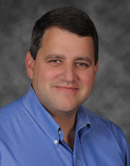
Executive Director
Texas
Advanced Computing Center
The University
of Texas at Austin
Topic:
"Thoughts from TACC on
the Next Generation of
Academic Supercomputers"
Slides:
available after the Symposium
Talk Abstract
Coming soon
Biography
Dan Stanzione is the Executive Director of the
Texas
Advanced Computing Center
(TACC)
at
The
University of Texas at Austin
and the Principal Investigator for
Wrangler.
He is also the PI for TACC's 10 PetaFlop
Stampede
supercomputer,
and has previously been involved in
the deployment and operation of the
Ranger
and
Lonestar
supercomputers at TACC.
He served as the Co-Director of
The
iPlant Collaborative,
an ambitious endeavor to build
cyberinfrastructure to address
the grand challenges of plant science.
Prior to joining TACC,
Dr. Stanzione was the founding director of the
Ira A. Fulton
High Performance Computing Institute
(HPCI)
at
Arizona
State University (ASU).
Before ASU,
he served as an AAAS Science Policy Fellow
in the
National
Science Foundation
and as a research professor at
Clemson
University,
his alma mater.
Vas
Vasiliadis
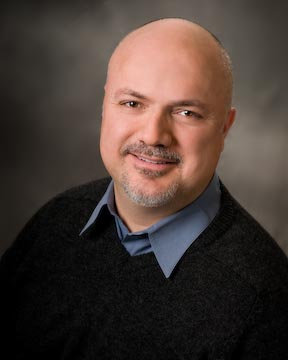
Chief Customer Officer
Computation
Institute
University
of Chicago
Topic:
"Globus Coping Skills:
Taming the Instrument Monster
and Cloud Storage"
Slides:
PDF
Talk Abstract
Coming soon
Biography
Vas Vasiliadis
is Chief Customer Officer for
Globus,
innovative software-as-a-service
for research data management,
developed and operated by the
University
of Chicago.
His responsibilities include
sales, marketing, customer support,
training, and
working with current and prospective users
to grow adoption of the service.
Vas is also an
Adjunct
Associate Professor
in the
Masters
Program
in
Computer
Science,
where he teaches courses on
Cloud Computing
and
Product Management.
Vas has over 30 years of experience in
operational and consulting roles,
spanning strategy, marketing and technology.
He has helped found and build
enterprise software business in
customer relationship and
supply chain management,
grid computing,
and
financial services.
Dana Brunson
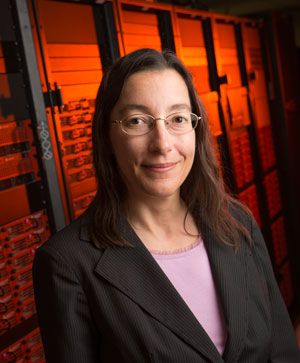
Executive Director for
Research Engagement
Internet2
Panel Topic:
"External Funding for Research Computing:
The Role of the OneOklahoma
Cyberinfrastructure Initiative"
Panel Abstract
Since
the OneOklahoma Cyberinfrastructure Initiative
was established in September 2008,
member institutions have been awarded
over $13M in external funding for
research computing
-- almost a million dollars a year on average,
over $6M of that in 2022 alone.
In this panel,
we'll look at how OneOCII uses
peer mentoring and community building
to create a statewide capability
for ongoing federal support of Oklahoma
computing/data-intensive research.
Biography
Coming soon
Dr. Dana Brunson
is Executive Director for Research Engagement
at
Internet2.
She is responsible for
developing, directing, and executing
Internet2's
strategy and active engagement with
the national and global communities
that
supports
the effective use and development of
research cyberinfrastructure.
Dana is Principal Investigator of the
Research
Computing and Data Nexus,
a
National
Science Foundation
Cyberinfrastructure
Center of Excellence
Pilot,
and serves in leadership roles
in the
Campus
Research Computing Consortium
(CaRCC),
including co-chairing
the
RCD
Capabilities Model
working group
and
the
Logistics operations
group.
In August 2022,
she completed her role as co-manager of the
XSEDE
Campus Engagement Program
which included the
Campus
Champions.
Prior to
joining Internet2 in January 2019,
she was Assistant Vice President for
Research Cyberinfrastructure,
Director of the
Oklahoma
State University
High
Performance Computing Center,
and co-lead of the
OneOklahoma
Cyberinfrastructure Initiative.
She earned her Ph.D. in
Mathematics
at the
University
of Texas at Austin
and master's and bachelor's degrees in
mathematics
from OSU.
James Deaton

Executive Director
Great
Plains Network
Panel Topic:
"External Funding for Research Computing:
The Role of the
OneOklahoma Cyberinfrastructure Initiative"
Panel Abstract
Since
the OneOklahoma Cyberinfrastructure Initiative
was established in September 2008,
member institutions have been awarded
over $13M in external funding for
research computing
-- almost a million dollars a year on average,
over $6M of that in 2022 alone.
In this panel,
we'll look at how OneOCII uses
peer mentoring and community building
to create a statewide capability
for ongoing federal support of Oklahoma
computing/data-intensive research.
Biography
James Deaton
is the Executive Director of the
Great
Plains Network
(GPN),
a
non-profit consortium of research universities
focused upon
connecting networks,
advocating research
and
cultivating community.
Prior to joining GPN,
he served as Chief Technology Officer for
OneNet,
Oklahoma's research and education network.
For more than two decades,
Deaton has helped drive
cyberinfrastructure initiatives,
by working with leaders of
state,
regional
and
national
network initiatives.
He serves as a board member of
The Quilt,
Chair of
Internet2's
Network Architecture, Operations and Policy
Program Advisory Group,
and is proud to be involved in
a number of
regional research computing and data projects
such as the
Great
Plains CyberTeam
and
Great
Plains Augmented Regional Gateway
to the
Open
Science Grid.
Jeremy
Evert
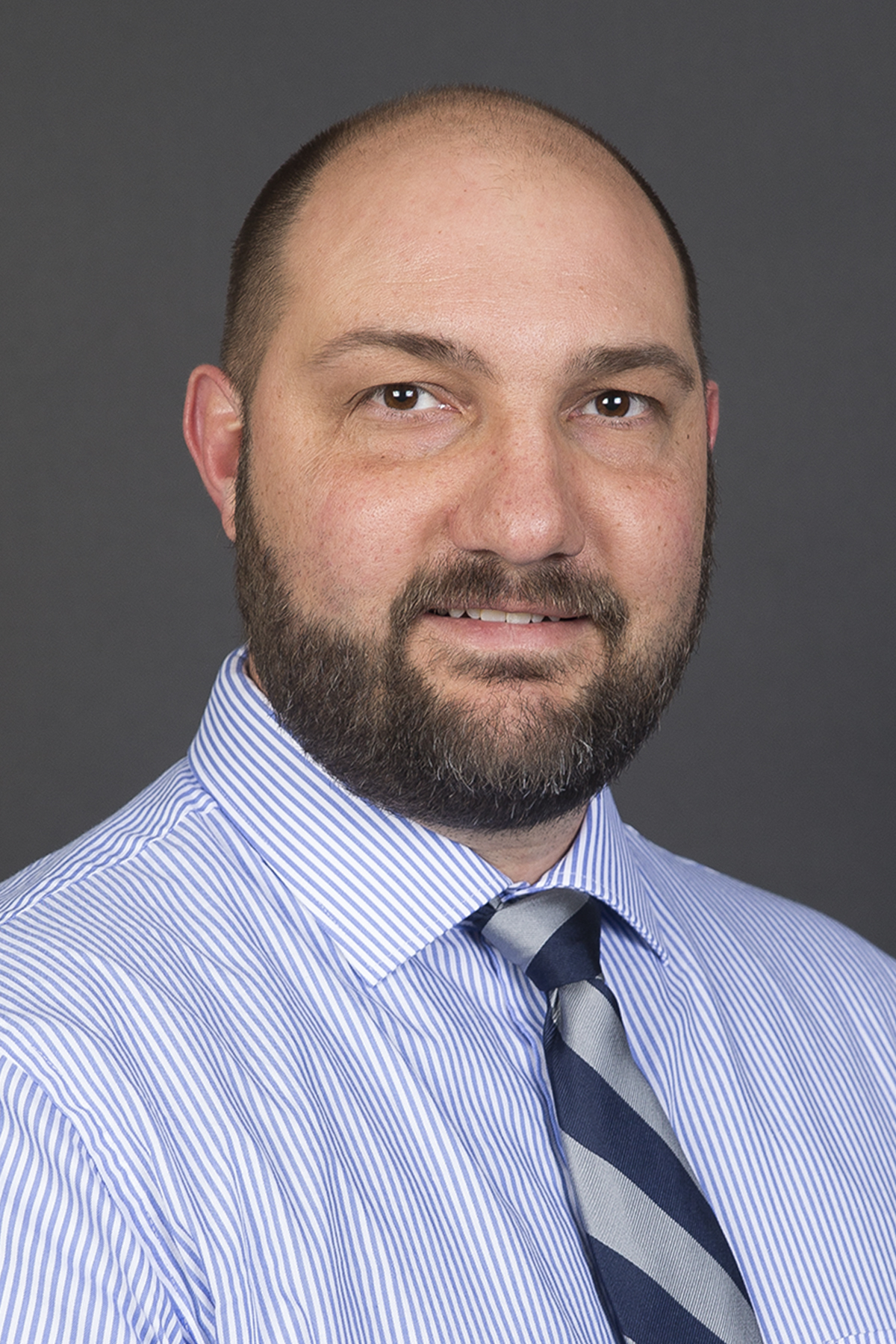
Associate Professor
Department
of Computer Science
Southwestern
Oklahoma State University
Panel Topic:
"External Funding for Research Computing:
The Role of the OneOklahoma
Cyberinfrastructure Initiative"
Panel Abstract:
Since
the OneOklahoma Cyberinfrastructure Initiative
was established in September 2008,
member institutions have been awarded
over $13M in external funding for
research computing
-- almost a million dollars a year on average,
over $6M of that in 2022 alone.
In this panel,
we'll look at how OneOCII uses
peer mentoring and community building
to create a statewide capability
for ongoing federal support of Oklahoma
computing/data-intensive research.
Biography
Dr. Jeremy Evert
is an associate professor for the
Department
of Computer Science
at
Southwestern
Oklahoma State University.
Jeremy teaches
introductory programming
and
source code management.
He works closely with his students on
undergraduate research projects.
Jeremy has been successful in
securing funding for
equipment and student travel from
Oklahoma NASA EPSCoR
and the
National
Science Foundation.
Jeremy has been a mentor for a
Blue Waters Student Intern,
and has also coached teams for
the 2022 and 2022
Oklahoma
High Performance Computing Competition.
Jeremy was selected by the SWOSU students as
the 2022 Faculty of the Year.
Franklin Fondjo Fotou

Associate Professor
Department Chair
Department
Department of Technology
Director
LU
Computing Center for
Research & Education
Langston
University
Panel Topic:
"External Funding for Research Computing:
The Role of the OneOklahoma
Cyberinfrastructure Initiative"
Panel Abstract
Since
the OneOklahoma Cyberinfrastructure Initiative
was established in September 2008,
member institutions have been awarded
over $13M in external funding for
research computing
-- almost a million dollars a year on average,
over $6M of that in 2022 alone.
In this panel,
we'll look at how OneOCII uses
peer mentoring and community building
to create a statewide capability
for ongoing federal support of Oklahoma
computing/data-intensive research.
Biography
Franklin Fondjo Fotou
received his B.S. degree in Physics,
M.Sc. degrees in Physics
(with a minor in Electronics),
M.Sc. Degree in Physics
(with a minor in Heat Transfer)
from the
University of Yaoundé I,
Yaoundé Cameroon,
in 1996, 1998, and 2000
respectively.
He received the Doctor's degree in
Computer Science and Communication Engineering
at the
Graduate School of
Information Science and Electrical Engineering,
Kyushu University,
Japan in March 2006.
Dr. Fondjo
was recipient of
the Japanese government
scholarship for excellence,
the Munbukagakusho,
from April 2003 - March 2006,
and has received several the
Young Scientist Research Fund
of the 21st Century
COE Program of Japan
in 2004, 2005 and 2006.
Dr. Fondjo Fotou
is Co-PI and key personnel on
several NSF funded grants.
His current research includes
Computational Electromagnetics and SAR,
Internet of Thing (IoT),
and big Data analysis and Data Science.
He is currently the Chair of the
Department of Technology,
Langston University,
in Langston OK,
the Director of the
Langston Computing Center for
Research and Education
(LU-CCRE),
the Director of the
Langston Center for
Interdisciplinary Research and Education
(LU-CIRE),
and the Co-Director of the
Langston Math Science and Technology (MST)
Summer Program at Langston University.
Dr. Fondjo Fotou
is
a
Campus Champion for
Langston University
and an active member of the
OneOklahoma Cyberinfrastructure Initiative
(OneOCII).
He is also member of both the
IEEE
(Institute of Electrical and
Electronics Engineers)
in US and the
IEICE
(The Institute of Electronics,
Information and Communication Engineers)
in Japan.
Karl
Frinkle
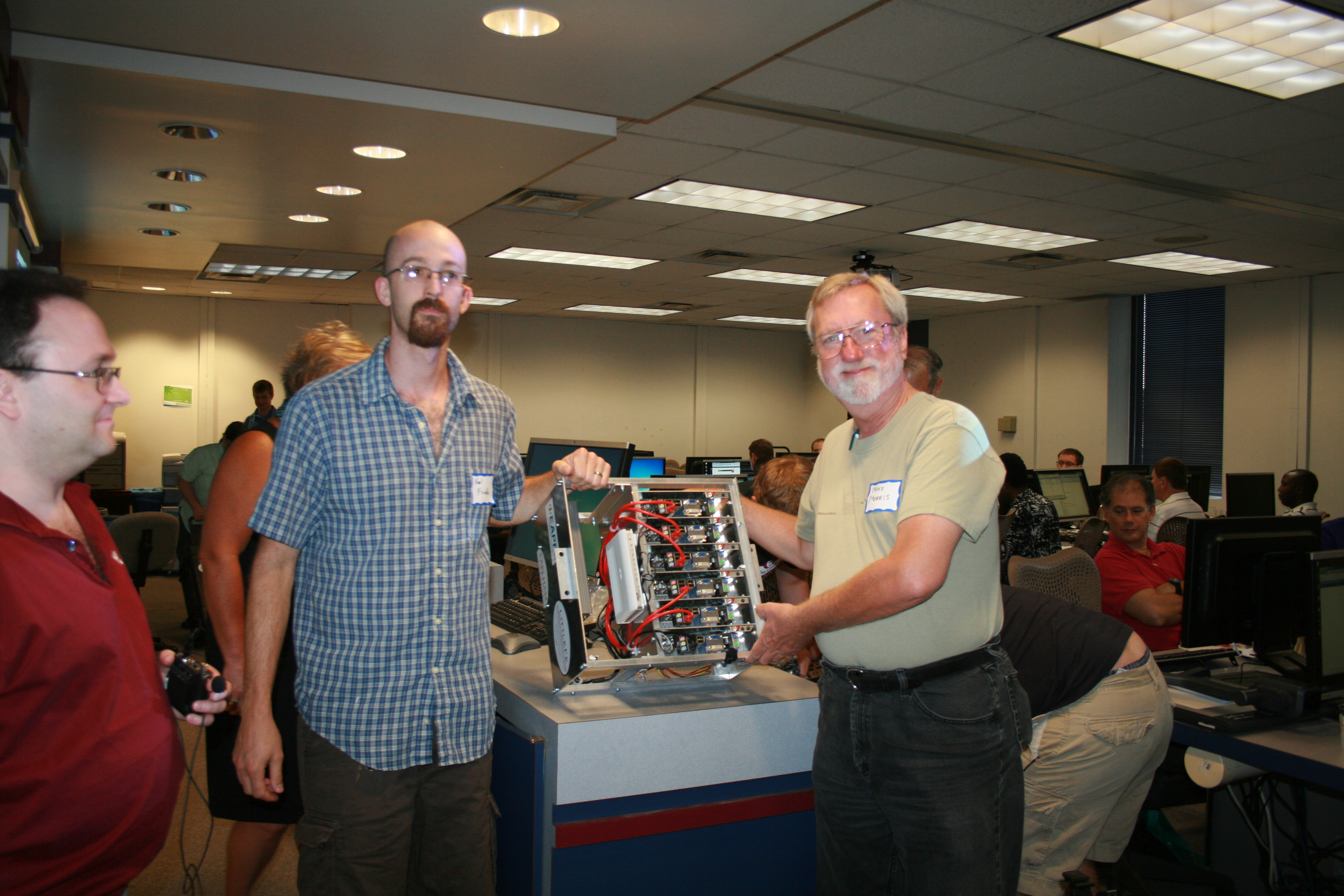
Professor
Department
of Mathematics
Southeastern
Oklahoma State University
Panel Topic:
"External Funding for Research Computing:
The Role of the OneOklahoma
Cyberinfrastructure Initiative"
Panel Abstract
Since
the OneOklahoma Cyberinfrastructure Initiative
was established in September 2008,
member institutions have been awarded
over $13M in external funding for
research computing
-- almost a million dollars a year on average,
over $6M of that in 2022 alone.
In this panel,
we'll look at how OneOCII uses
peer mentoring and community building
to create a statewide capability
for ongoing federal support of Oklahoma
computing/data-intensive research.
Biography
Karl Frinkle
is an applied mathematician
who earned his PhD from the
University
of New Mexico.
He is deeply interested in
numerical simulations,
and most recently in parallel programming.
Karl joined
the SE Mathematics department in 2005,
and thoroughly enjoys teaching
parallel programming
courses
with
Mike Morris
through the CS department.
Evan
Lemley
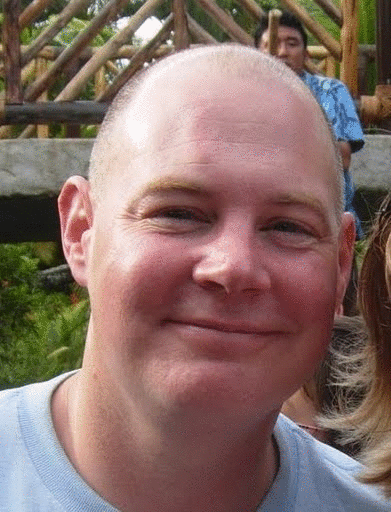
Professor
Department
of Engineering & Physics
University of
Central Oklahoma
Panel Topic:
"External Funding for Research Computing:
The Role of the OneOklahoma
Cyberinfrastructure Initiative"
Slides:
available after the Symposium
Panel Abstract
Since
the OneOklahoma Cyberinfrastructure Initiative
was established in September 2008,
member institutions have been awarded
over $13M in external funding for
research computing
-- almost a million dollars a year on average,
over $6M of that in 2022 alone.
In this panel,
we'll look at how OneOCII uses
peer mentoring and community building
to create a statewide capability
for ongoing federal support of Oklahoma
computing/data-intensive research.
Biography
Evan Lemley
received his BA in Physics from
Hendrix
College
and MS and Ph.D
in Engineering (Mechanical) from the
University
of Arkansas.
His thesis
work was focused on modeling and simulation of
various neutron detectors.
Post graduation Evan worked for
the engineering consulting firm
Black &
Veatch
in a group responsible for
modeling coal power plants with
custom written software.
In August 1998,
Evan became an Assistant Professor in the
Department
of Engineering and Physics
(formerly Physics)
at the
University
of Central Oklahoma,
and has been there since,
teaching
mechanical engineering,
physics,
and
engineering computation
courses.
Early research at UCO was focused on
neutron transport in materials.
More recently,
Evan has been involved in simulation of
flow in microtubes and microjunctions
and
simulation of flow in porous networks.

